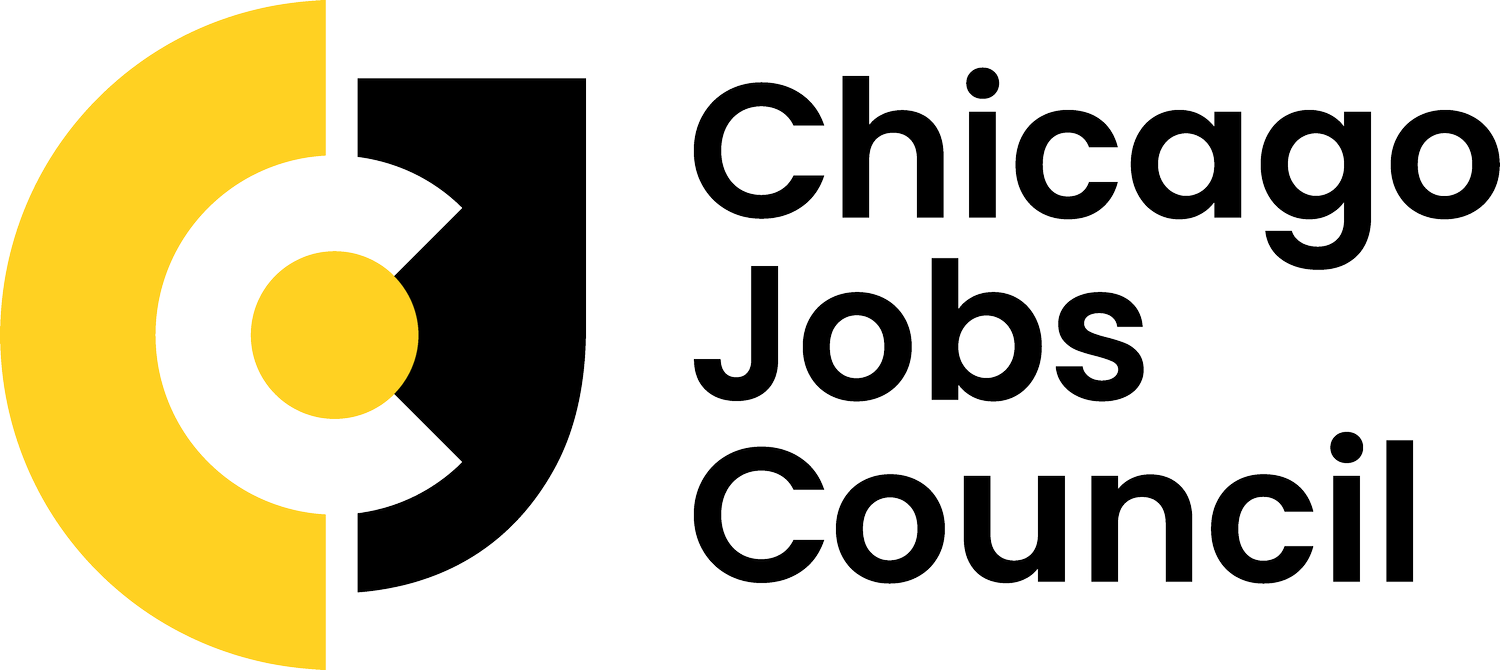Collaboration: A Pathway to Greater Impact
Recap of the Third Annual Workforce Symposium
At the Third Annual Workforce Symposium, workforce development professionals across the Chicagoland area were instrumental in exploring the theme, “Fostering Collaboration: Bridging the Gap Between Workers, Employers, and Community.” Their insights, best practices, and program successes throughout the day were pivotal in exploring how to create a more equitable workforce system. The event was hosted by the Chicago Workforce Funder Alliance, which partnered and planned with the Cook County Bureau of Economic Development, World Business Chicago, Chicago Cook Workforce Partnership, Chicago Jobs Council, and The Innovation Nexus.
We started the day with networking and opening remarks, setting the stage for a packed schedule of engaging discussions. Keynote speaker Karin Norington-Reaves challenged us to rethink how we collaborate through thoughtful table-talk conversations. In the breakout sessions, we dove deeper into workforce policy (WIOA), environmental job pathways (CEJA), and the evolving roles of workers and employers.
The main takeaway was the importance of collaboration. Whether building fair and sustainable infrastructure, overcoming obstacles, or working with specific groups, success depends on having strong relationships, clearly defined roles, and open communication. We shouldn't let ego or the desire for ownership hinder the bigger opportunities that collaboration can bring.
Chicago Jobs Council (CJC) participated in two panels at the symposium, showcasing our role as a trusted convener and intermediary in workforce development. In the "Workforce Policy on Capitol Hill and in Illinois & Why It Matters" panel, we stressed the importance of advocating for workforce equity, particularly in legislative discussions about the reauthorization of the Workforce Innovation and Opportunity Act (WIOA) and skills-based hiring. In the "Creating an Equitable Clean Infrastructure Workforce Together" panel, we highlighted CJC's involvement in passing crucial legislation such as the Clean Energy Jobs Act (CEJA), and how we worked with diverse partners to ensure fair access to clean energy jobs for underserved communities. We also advocated for smaller community-based organizations (CBOs), ensuring they had access to resources and funding to enhance their capabilities. As we continue this important work, CJC remains committed to bridging the gap between CBOs, government entities, and other key stakeholders to bring about meaningful, systemic change.
This year's symposium emphasized the importance of having a shared vision, clarity in roles, and a commitment to uplifting all voices, particularly in workforce development and community partnerships. We are excited to continue working together to make a lasting impact across our city and beyond.



